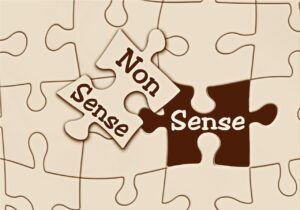The Nigerian music industry has grown exponentially over the past two decades, producing globally acclaimed artists and becoming a dominant force in Africa’s entertainment scene. However, with this growth comes the need for a robust framework for managing royalties, a critical component of an artist’s revenue stream. Intellectual property (IP) is an invaluable asset in today’s digital and creative economies and IP licensing royalties is a common way for creators of intellectual property to monetize their proprietary assets
Intellectual property (IP) refers to creations of the mind, such as inventions; literary and artistic works; designs; and symbols, names and images used in commerce. IP is protected in law by, for example, patents, copyright and trademarks, which enable people to earn recognition or financial benefit from what they invent or create. By striking the right balanceneighbouringe interests of innovators and the wider public interest, the IP system aims to foster an environment in which creativity and innovation can flourish. In intellectual property (IP) rights, two important parties are the author and the owner. Although these terms are sometimes used interchangeably, they hold distinct legal definitions, particularly regarding royalties and other economic benefits derived from IP rights. Authorship and ownership in copyright are two separate concepts, each with distinct rights. The author is granted moral rights, while the copyright owner holds economic rights, enabling them to exploit and manage the copyright, subject to the author’s moral rights. While the author and the copyright owner can sometimes be the same, this is not always the case, and many works have different individuals or entities serving as author and copyright owner.
The Author
The author is the original creator of intellectual property, such as:
- A writer creating a novel
- An artist producing a painting
- A musician composing a song
In most legal systems, the author holds moral rights to the work, including:
- Right of attribution: The right to be recognized as the creator.
- Right of integrity: The right to prevent distortion or harm to the work.
Authors generally have the initial claim to the economic rights of their work unless those rights are transferred, assigned, or licensed to another party.
The Owner
The owner of intellectual property holds the economic rights, which may or may not reside with the author. Ownership can be established in several ways:
- Assignment: The author transfers ownership to another party, such as a publisher or organization.
- Employment: Works created in the course of employment typically belong to the employer under a “work for hire” arrangement.
- Licensing: The author retains ownership but grants specific rights to use the work to another party.
Economic rights allow the owner to commercially exploit the work, including reproducing, distributing, and publicly performing it.
WHAT ARE ROYALTIES?
Royalties are payments made to rights holders (such as songwriters, composers, and performers) when their copyrighted works are used. They are a form of compensation for the intellectual property (IP) created by the artist. Royalties originate from the income generated through the use of musical compositions. Their calculation is influenced by factors like the type of royalty and the terms outlined in relevant agreements.
WHO IS ENTITLED TO ROYALTIES?
Royalties are a share of the income generated from the use of intellectual property. The entitlement depends on the contractual or legal arrangements:
- If the author retains ownership: The author is entitled to royalties.
- If the author transfers ownership: The new owner (e.g., a publisher or producer) is entitled to royalties, though the author may negotiate a percentage as part of the transfer agreement.
- Licensing agreements: If the owner licenses the work to third parties, the licensee typically pays royalties to the owner. In this case, the author might receive royalties only if the licensing agreement specifies this.
TYPES OF MUSIC ROYALTIES
Neighboring Rights (and Royalties).
Neighboring rights refer to royalties paid to the copyright holders of sound recordings, typically performing artists and record labels when their work is publicly performed. Unlike public performance royalties, which are paid to songwriters and composers, neighboring royalties compensate those who own the recording itself. These rights are managed by Performance Rights Organizations (PROs) and are subject to local laws.
Digital performance royalties
The rule exempting terrestrial AM/FM radio from paying royalties to sound recording owners does not apply to digital platforms. Internet radio, satellite radio, and cable radio are required to pay royalties to master recording owners. While these payments are similar to neighboring rights, they are classified separately as digital performance royalties.
Sync Licensing Fees
Sync royalties are earned when a song is used in visual media such as movies, commercials, video games, or TV shows. This is an increasingly important revenue stream for Nigerian artists as Nollywood and international productions feature local music. Synchronization (sync) royalties are determined on a case-by-case basis. Their value depends on factors like the significance of the composition in the production, the length of its use, and the production’s budget.
Public Performance Royalties
These are paid when a song is performed publicly, either live or through radio, television, or public spaces such as clubs, restaurants, and events. Organizations like the Performing Musicians Employers’ Association of Nigeria (PMAN) and the Copyright Society of Nigeria (COSON) are responsible for collecting and distributing performance royalties. Public performance royalties are typically collected by performing rights organizations (PROs), which track and oversee the public performance of compositions. These organizations gather fees from venues, broadcasters, streaming platforms, and other users, then distribute the royalties to the respective songwriters, composers, and publishers
Mechanical Royalties
These are earned when a copyrighted song is reproduced and distributed. In Nigeria, mechanical royalties are typically generated from physical sales, digital downloads, and streaming platforms like Spotify, Apple Music, and Boomplay. Mechanical royalties are often calculated as a percentage of the wholesale price or the revenue derived from the sale or reproduction of the compositions. The rates can vary based on the region or country and the negotiated terms between the involved parties.
LEGAL FRAMEWORK FOR ROYALTIES IN NIGERIA
The Copyright Act (Cap C28, Laws of the Federation of Nigeria, 2004) is the primary legislation governing royalties in Nigeria. It protects the rights of authors, composers, and performers, and led to the creation of the Nigerian Copyright Commission (NCC), which oversees copyright registration and enforcement.
However other relevant laws include:
- Trade Marks Act: This Act protects brand identity by granting exclusive rights to registered trademarks.
- Patent and Designs Act: This Act provides patent protection for original inventions and industrial designs.
- National Broadcasting Commission (NBC) Act: This Act regulates broadcasting and enforces the Nigerian Broadcasting Code.
- National Film and Video Censors Board (NFVCB) Act: This Act regulates and classifies films and grants licenses for distribution and exhibition.
- Nigerian Film Corporation (NFC) Act: This Act oversees the development of Nigeria’s film industry and cinema culture.
ROYALTY DISTRIBUTION PROCESSES IN NIGERIA
In Nigeria, the management and distribution of royalties are primarily handled by Collective Management Organizations (CMOs). Key CMOs in the country include:
- The Copyright Society of Nigeria (COSON)
- The Performing Musicians Employers’ Association of Nigeria (PMAN)
- The Nigerian Music Rights Organization (NMRO)
Role of CMOs in Royalty Collection
The Musical Copyright Society Nigeria (MCSN) plays a pivotal role in the Nigerian music industry as the sole Collecting Management Organization (CMO) approved by the Nigerian Copyright Commission (NCC). It is responsible for licensing music users and collecting royalties for its members, who include composers, songwriters, performers, producers, publishers, record labels, and other rights holders. CMOs are tasked with collecting royalties from various sources, such as radio stations, television networks, and live performance venues. Their primary role is to ensure that music creators are fairly compensated for the use of their intellectual property. Royalties are distributed to registered members based on the extent of usage and the popularity of their music. Additionally, CMOs negotiate licensing agreements with music users, thereby generating revenue on behalf of their members.
MCSN’s Key Responsibilities and Mission
MCSN focuses on facilitating the use of music while ensuring the rightsof creators are upheld. Its objectives include:
- Royalty Collection and Distribution:
MCSN collects royalties for Performance Rights, Mechanical Rights, and Neighboring Rights, ensuring that creators and rights holders are compensated fairly for the use of their work.
- Licensing Music Users:
The organization provides easy access to licenses required for public performances, mechanical reproductions, and uses of neighboring rights. This simplifies compliance for businesses and individuals who use music in their operations.
- Negotiating Fair Rates:
MCSN ensures fair licensing rates for music usage, making the licensing process seamless for licensees and equitable for creators.
- Offering a Broad Repertoire:
With a vast catalogue of musical works and sound recordings, MCSN allows businesses to access a diverse range of licensed music for various purposes, from public events to commercial use.
- Promoting Copyright Compliance:
By obtaining a license from MCSN, businesses show their dedication to respecting intellectual property rights, contributing to a culture of compliance, and supporting the creative industry.
Value to the Music Industry
MCSN bridges the gap between music creators and users, providing a transparent and structured approach to royalty collection. This fosters a thriving music ecosystem, ensuring that artists and rights holders benefit from their intellectual property while supporting businesses in leveraging music legally and effectively.
THE IMPACT OF TECHNOLOGY ON ROYALTIES IN NIGERIA
Technological advancements, particularly in music streaming services and digital sales platforms, have transformed the music industry in Nigeria. Platforms like Spotify, Apple Music, and YouTube have revolutionized how music is accessed, providing users with a convenient and accessible way to listen to music. These services have also expandedd the global reach of Nigerian artists, enabling their music to gain worldwide recognition. Digital sales platforms, such as iTunes and Amazon Music, have simplified the process of purchasing music. Artists can now release their songs and albums directly on these platforms, bypassing the challenges associated with physical distribution, which has traditionally been a barrier in Nigeria. Technological innovations have also empowered artists to independently distribute their music, reducing their reliance on traditional record labels. This shift allows artists greater control over their royalties and the ability tosecure more favorable agreements.
Overall, the emergence of streaming and digital platforms has significantly enhanced opportunities and revenue streams for Nigerian artists, revolutionizing the way they monetize their work. It is important to state that an author of intellectual property may not be entitled to royalties under certain circumstances, particularly where contractual or legal arrangements override the default entitlement. Examples include:
- Work-for-Hire Arrangements: If the work was created under a “work for hire” agreement, the employer typically becomes the owner, and the author is not entitled to royalties unless explicitly agreed upon in the contract.
- Assignment of Rights: When an author assigns all economic rights to another party (e.g., a publisher or company), they relinquish the right to royalties unless the assignment contract includes a royalty clause.Where the assignee of a copyright becomes entitled to any right comprised in the copyright, he shall be treated as the owner of the copyright in respect of those rights. The assignor shall also be treated as the owner of copyright with respect to unassigned rights.
- One-Time Payment Agreements: An author may agree to receive a lump sum payment instead of ongoing royalties for their work.
- Breach of Contract: If the author violates the terms of the agreement with the owner or licensee, this might nullify their right to royalties.
In all cases, the terms of the contract are critical in determining whether the author forfeits their right to royalties. Contracts can indeed deviate from default legal entitlements, so careful negotiation and review are essential.
- Must copyright be registered to be protected?
No, copyright does not need to be registered to be protected. In most jurisdictions, including Nigeria and under international frameworks like the Berne Convention for the Protection of Literary and Artistic Works, copyright protection is automatic upon the creation and fixation of the work in a tangible medium. This means as soon as an original work is created and expressed in a perceivable form, it is protected by copyright. However, registration can provide additional advantages, such as serving as prima facie evidence of ownership in court proceedings.
It is essential to state that registerng a copyright is not a precondition for the work to be protected. Hence, copyright may not need to be registered. The rights enjoyed simply activate automatically when the work is created. However, registered copyright with the NCC prevents others from copying the work and protects the author from any infringement.
When does an intellectual property become protected by copyright law?
An intellectual property becomes protected by copyright law when:
- The work is original, meaning it must originate from the author and involve some degree of creativity.
- The work is fixed in a tangible medium of expression, such as writing, recording, or digital storage. For example, a written poem, a recorded song, or a saved digital design.
Copyright does not protect ideas, procedures, methods, or concepts—only the specific expression of those ideas.
The duration of copyright protection varies depending on the jurisdiction and the type of work. Under Nigerian law (Copyright Act of 2022) and most international standards:
- For literary, musical, and artistic works: The life of the author plus 70 years after their death.
- For corporate or anonymous works: 70 years from the date of publication.
- For sound recordings, broadcasts, and films: 50 years from the date of publication or production.
After the expiration of this period, the work enters the public domain, where it can be used freely by anyone.
LICENSING AND ROYALTIES
Licensing and royalties are closely related concepts in copyright law:
- Licensingis the process where the copyright owner grants another party the right to use their work under specified terms and conditions. This can be exclusive (only the licensee can use the work) or non-exclusive (multiple parties can use the work).
- Royaltiesare payments made by the licensee to the copyright owner as compensation for using the licensed work. Royalties are not mandatory in every licensing agreement; they depend on the terms negotiated between the parties. Some licenses, such as open-source or creative commons licenses, may allow use without royalty payments.
Copyright law gives certain to creators, including the right to reproduce, distribute, and make adaptations from their works. Unauthorized use of another’s copyrighted work is copyright infringement.
The right to sue for unauthorized use of a licensed work depends on the type of license:
- Exclusive License: The licensee can usually sue for infringement, as they hold specific legal rights to the work. The copyright owner may also sue for retained rights, and both may sue jointly if necessary.
- Non-Exclusive License: The copyright owner retains the primary right to sue. The licensee cannot sue unless explicitly authorized in the license agreement.
The ability to sue is often determined by the terms of the license.
CHALLENGES FACING ROYALTY COLLECTION IN NIGERIA
1. Weak Enforcement of Copyright Laws
While Nigeria has copyright laws, enforcement remains ineffective due to limited resources, inadequate training of enforcement agencies, and corruption. This weakness allows widespread violations, including unauthorized use of creative works, making it difficult for artists and right holders to earn fair royalties.
2. Lack of Awareness and Education Among Artists
Many artists and creators are unaware of their rights under copyright laws or how to protect them. This lack of awareness often leads to undervaluation of their work, exploitation by intermediaries, and missed opportunities to benefit from royalty collection mechanisms.
3. Inadequate Infrastructure for Tracking and Collecting Royalties
The country lacks advanced systems for tracking the usage of copyrighted materials, such as digital monitoring technologies. This makes it challenging to accurately record when and how creative works are used, leading to underpayment or non-payment of royalties.
4. Issues with Transparency and Accountability in CMOs
Collective Management Organizations (CMOs) in Nigeria, which are responsible for collecting and distributing royalties, often face allegations of mismanagement, lack of accountability, and unfair practices. These issues erode trust among artists and discourage participation.
5. Piracy and Illegal Music Distribution
Piracy is rampant in Nigeria, with widespread illegal copying, downloading, and sharing of music and other creative works. This significantly reduces revenue streams for artists and limits the effectiveness of royalty collection, as pirated copies bypass official channels entirely.
CONCLUSION
In conclusion, royalties play an important role in protecting intellectual property rights andpromoting creativity. They allow creators to receive compensation for their work and incentivize innovation and creativity. By ensuring that creators are fairly rewarded for their intellectual contributions, royalties contribute to a thriving creative economy.
Kate Nkume





On point.
Oh… now the Mercy Chinwo’s saga is understood now